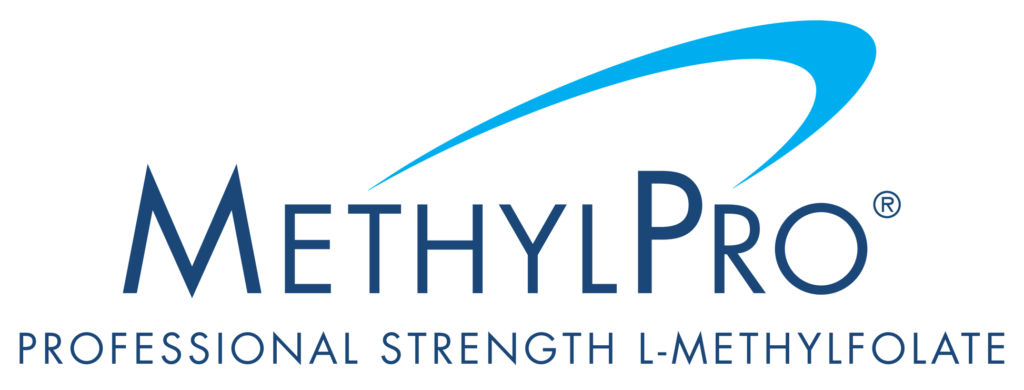Is it just us, or does life feel like a treadmill of stress sometimes? Stress affects individuals differently. If you are someone living with a methylation-associated genetic difference, like mthfr, stress may have a more noticeable effect, due to methylation differences.
Pressure at work or loss of a job, lack of sleep, chronic or acute illnesses, and poor diet are examples of common life events that elicit stress to the body. Our bodies cannot decipher where the strain is coming from. Whether mental, emotional or physical, it will take the same action of “fight or flight”, known as the sympathetic nervous system (SNS) response.
It is normal and healthy for the body to elicit this response acutely. However, in order to stay healthy, it is important to recover with the parasympathetic nervous system (PNS) response of “rest and digest” [1]. The SNS and PNS responses should work in balance, allowing you to act quickly when needed and unwind and relax shortly thereafter. When stressors become dominant in our lives without counteractions, our bodies can experience imbalances.
What’s happening?
Imbalanced methylation may influence stress response and affect how it’s perceived from one individual to another [2,3]. An increase in stress requires increased utilization of methyl groups (-CH3) from donors such as 5-Methyltetrahydrofolate (5-MTHF) [4].
The MTHFR gene instructs the conversion of dietary folate into this methylated form, 5-MTHF. This primes it for further use in methylation [4,6a]. Impairments to the gene, known as single nucleotide polymorphisms (SNPs) can alter the function of the enzyme, thereby altering methylation [4].
Fight or Flight
Epinephrine (also known as adrenaline) is a neurotransmitter (NT) that spikes as a response to stressors and sends us into “fight or flight” mode. It requires methylation from a methyl donor in order to be broken down in the body, thus allowing a return to the resting state of the PNS [5]. The COMT gene, often referred to as the “worrier/warrior” gene, is responsible for this breakdown. SNPs in the coding of the COMT gene can affect the time that epinephrine stays in circulation, potentially keeping you wired [5,6].
Steady stress “pushes the gas pedal” on our main stress response system known as the hypothalamic-pituitary-adrenal axis (HPA) [1]. This continuous demand increases production of epinephrine and the hormone, cortisol. Elevated and prolonged exposure to these substances can influence many systems in our bodies including immunity, digestion, weight, and blood glucose regulation [1]. Additional genes involved in methylation can be impacted as well.
Maintaining healthy lifestyle practices can have a positive influence on identified SNPs. The study of epigenetics demonstrates how outside factors such as diet, sleep, and environment can alter how a gene is expressed [4,13]. Methyl groups act on genes as conductors and can determine if the gene is turned “on” or “off”. Times of increased stress or changes to daily routines (which are presently the norm) can influence gene expression, allowing the default heterozygous or homozygous SNP variant to prevail. Placing focus on balancing common stressors can help minimize deficits.
Top 3 common stressors:
1. Impaired sleep
Sleep is an extremely important factor in stress relief and recovery. Unfortunately, this also means that disruptions to your sleep-wake cycle can perpetuate stress, creating a vicious cycle of discomfort. Methylation of the neurotransmitter, serotonin, produces melatonin, a hormone that instructs your body to prepare for rest [7].
Bright light exposure at night, including blue light from computers, TVs, and cell phones can disrupt melatonin production [8]. Melatonin naturally increases at night to help you fall and stay asleep, and declines in the morning as cortisol rises, helping you feel awake and alert. Disruption to sleep can occur when too much cortisol is produced from stress and causes an imbalance with melatonin.
2. Poor diet
Food choices often change in times of high stress, and high fat and high sugar foods are suddenly more appealing. The stress-induced SNS state of the body releases glucose into the bloodstream while inhibiting the insulin needed to regulate added sugar intake [1].
The two-way relationship between the brain and gut, termed the “gut-brain axis”, connects the gut to our HPA axis, which is triggered for stress reactivity and response [9]. Both poor diets and stress can alter the population balance of the microbiome as well as motility and absorptive ability of the gastrointestinal tract. The dysbiosis that results from these changes can lead to neurotransmitter imbalances and increased strain on natural stress response [9].
Low dietary intake of folate or impaired conversion due to SNPs can shift methyl donor reliance onto other nutrients such as choline [10]. Diets lacking adequate intake of key nutrients can lead to an imbalance in methylation.
3. Toxin exposure
Whether you have increased your use of chemical cleaning products, increased your alcohol consumption, or increased use of certain medications during a stressful period of time, your exposure to toxins may be higher than normal. Accumulation of toxic stressors can negatively affect methylation [12,13]. Impaired absorption and utilization of methyl donor nutrients such as folate, vitamin B12, and choline, along with a greater shift to support detoxification can further one’s need for methylation support [12].
Can L-Methylfolate help with stress?
L-methylfolate provides the methyl donor needed for methylation [1-3]. If you are aware of your genetic SNPs and/or folate blood chemistry, you may have already noticed a change during these times and adjusted accordingly. Mood changes or the inability to unwind may indicate that methylation is impaired [5,14]. Supporting the stress response with L-methylfolate along with supportive nutrients such as vitamins B2, B6, and B12, magnesium, and choline may offer some benefits [15,16]. Legumes, eggs, peanuts, and kidney beans are all examples of food rich in both folate and choline [10,11]. Alternatively or in addition, you can find these supportive nutrients in products such as L-Methylfolate + Cofactors or B-Complex + L-Methylfolate. It is important to consult with your doctor when adding any new supplement to your diet.
Your epigenetics are not your fate; they can be supported by optimizing your healthy lifestyle, and by choosing a diet rich in methyl donor nutrients. Now is the time to feel empowered and create a routine that works for you, individually, to effectively manage stress.
References:
- https://www.ncbi.nlm.nih.gov/books/NBK278995/
- https://www.sciencedirect.com/science/article/pii/S0361923013001172
- https://www.ncbi.nlm.nih.gov/pmc/articles/PMC6014759/
- https://europepmc.org/article/pmc/3262611
- https://onlinelibrary.wiley.com/doi/full/10.1002/brb3.883
- https://www.tandfonline.com/doi/full/10.1080/10253890.2018.1553949
- https://www.ncbi.nlm.nih.gov/pmc/articles/PMC4334454/
- https://www.tandfonline.com/doi/full/10.1080/07420528.2018.1527773
- https://www.sciencedirect.com/science/article/pii/S2452231719300181
- https://hero.epa.gov/hero/index.cfm/reference/details/reference_id/6826932
- https://lpi.oregonstate.edu/mic/other-nutrients/choline
- https://febs.onlinelibrary.wiley.com/doi/full/10.1111/j.1742-4658.2009.06959.x
- https://www.ncbi.nlm.nih.gov/pmc/articles/PMC3035853/
- https://www.sciencedirect.com/science/article/abs/pii/S009130571630096X
- https://www.mdpi.com/2072-6643/9/5/445
- https://www.sciencedirect.com/science/article/abs/pii/S0027510711002934

